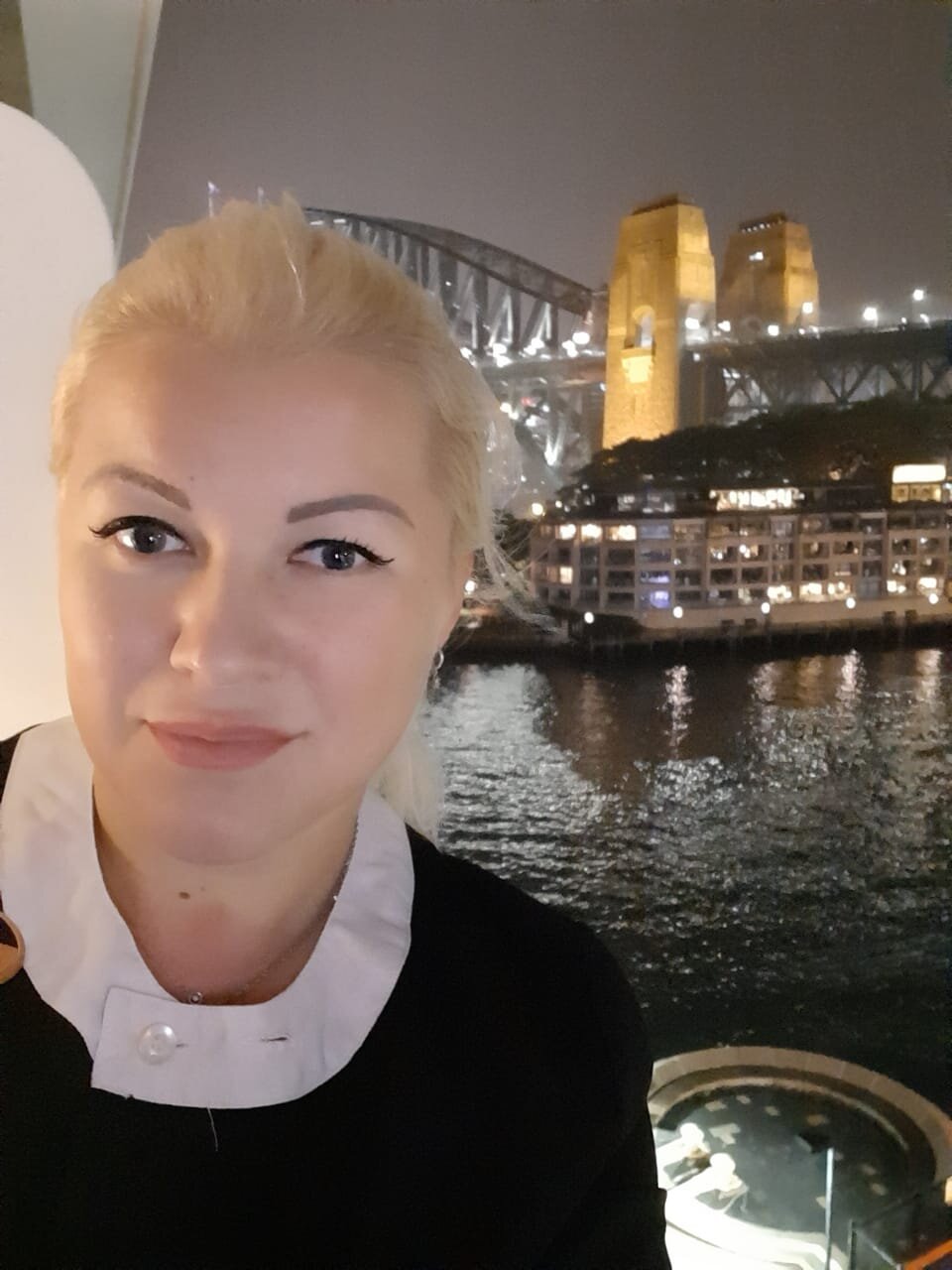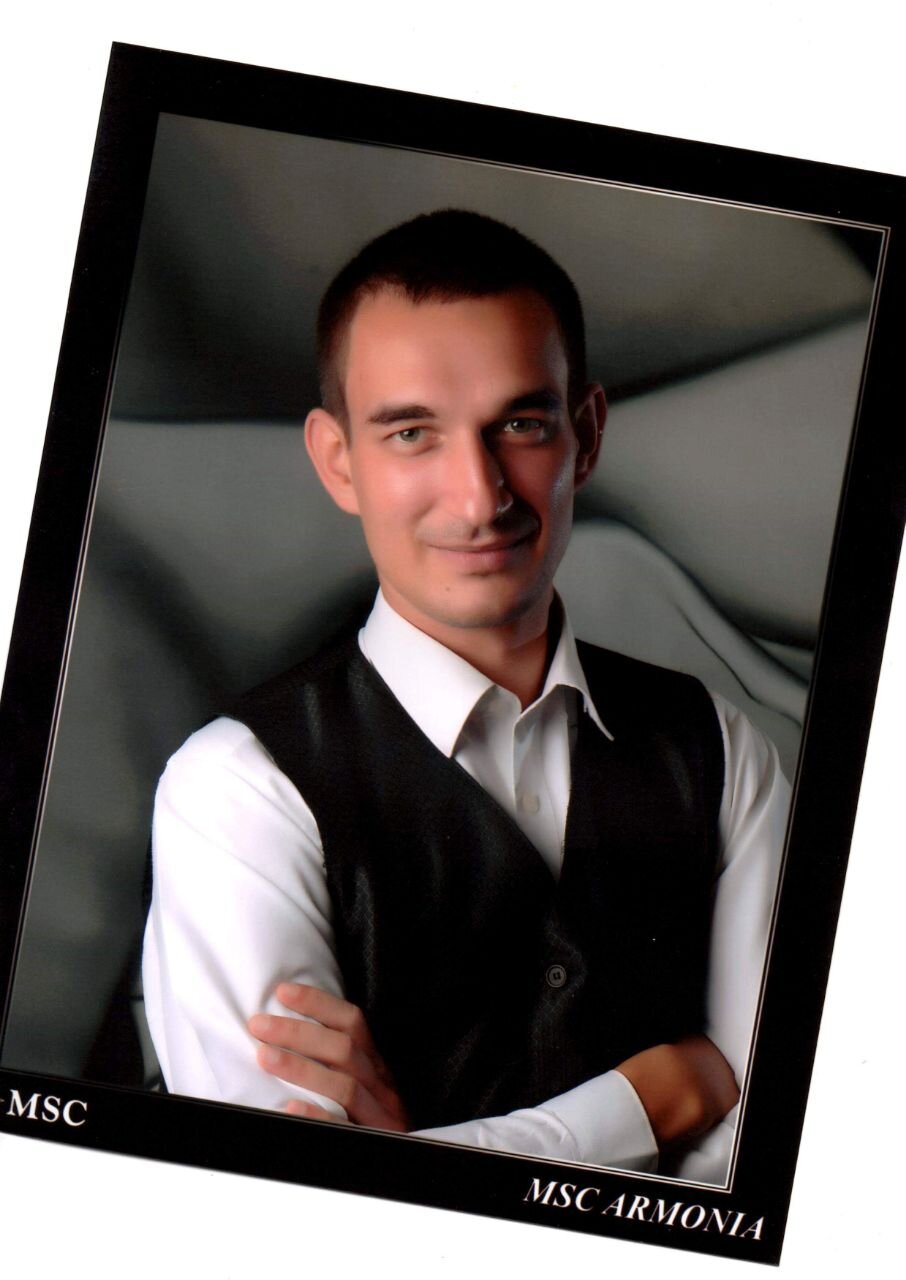When Alisa Lozenko boarded the MSC Magnifica cruise ship in early January, she knew she was in for the long haul. She didn’t realize just how long that haul would be.
A veteran cabin steward on cruise liners, Lozenko, 30, was preparing to depart on a four-month, round-the-world journey. She was one of roughly 20 Ukrainians working on board the vessel. The travelers and crew planned to make stops in cities on multiple continents.
But as the passengers enjoyed the trip of a lifetime, something was stirring in China: COVID-19.
Little did Lozenko know, but the cruise ship would spend nearly six weeks out at sea, unsure where to dock and how to return its passengers home as the novel coronavirus swept the globe.
Soon, infections began to appear on cruise ships, turning these giant pleasure boats into death traps for their often elderly passengers. Around the world, ports started to deny them entry.
“Of course, we were worried,” Lozenko told the Kyiv Post. “Because they said that if someone brought (coronavirus) on board, many people would lose their lives.”
Luckily, COVID-19 never reached the Magnifica, which finally docked in France on April 20. But trapped on the ocean for over a month, more than 1,500 passengers and 900 crew members found themselves in a strange predicament.
They were stranded in probably the safest place to be during a global pandemic: an isolated ship untouched by the dreaded disease.
Disaster averted
A native of Nova Kakhovka, a city of 46,000 people in Ukraine’s southern Kherson Oblast, Lozenko has worked on cruise ships for eight years. She was drawn to the job by the opportunity to see the world.
“I wanted to be among people,” she said. “It thought it would be a good experience, and I could see and learn many things.”
She says the job has given her what she expected. And although Magnifica was her first round-the-world trip, she didn’t think it would fundamentally differ from other cruises.
On Jan. 5, Magnifica departed Genoa, Italy. At the time, the novel coronavirus was hardly on anyone’s mind. There were only 59 cases in China and no deaths.
Lozenko says she got her first whiff of the global crisis-to-be a few weeks later. By the time the Magnifica arrived in Brazil on Jan. 21, she had learned that a virus was spreading in Asia.
“We thought that, maybe, they might cancel Asia or Singapore or Indonesia” in the itinerary, she said.
Still, they were in South America, and the danger seemed far away.

Alisa Lozenko, a native of the city of Nova Kakhovka in southern Ukraine, worked as a cabin steward on the MSC Magnifica. (Courtesy)
Andriy Butsenko, 31, a Ukrainian cashier in the Magnifica’s casino, said he only realized trouble was on the horizon closer to the end of February or early March.
Before then, “we didn’t feel it,” he told the Kyiv Post.
At the start of March, the Cook Islands denied Magnifica entry to the picturesque isle of Aitutaki. Still, the passengers were easily able to disembark at the following stops: several cities in New Zealand.
The next destination was Australia. The ship planned to stop in Hobart, the capital of the Australian island of Tasmania. But then Captain Roberto Leotta made a decision: With COVID-19 case numbers growing around the world and several cases on the island, it was too dangerous to disembark.
“We decided that it was much better for our passengers to remain safely on board,” he told the BBC.
That decision would disappoint the passengers. When it was announced, many were queued up, ready to exit the ship, Butsenko said.
However, with time, they would come to appreciate Leotta’s wisdom. “People weren’t happy, but I think they cared more about living,” Lozenko told the Kyiv Post.
A few days later, as the ship pulled up to Sydney, Australia, Leotta announced that the cruise was ending almost two months early.
By that time, it was already clear what effect COVID-19 was having on cruise ships. On Feb. 4, the Diamond Princess, a ship operated by Princess Cruises, had been quarantined in the port of Yokohama, Japan after 10 cases were discovered. As the weeks passed, the number of cases would grow and grow. By the end of that ordeal, 712 people from the ship would contract COVID-19 and 14 would die.
Widely covered in the international media, the plight of the Diamond Princess raised awareness about the danger of mass coronavirus infections on cruise ships.
Long journey home
After MSC cancelled the cruise, the company allowed some passengers to exit in Sydney and make their way home independently. Around 200 did.
“Everyone stood on the balcony and watched how they exited, how they were given masks and gloves,” Lozenko said. “It was very strict.”

Andriy Butsenko, a native of the town of Reni in southern Ukraine, worked as a cashier in the MSC Magnifica’s casino. (Courtesy)
Now, the ship would spend the next five weeks searching for a place to let its mostly European passengers off and send them home. After leaving Sydney, Magnifica would first sail to Fremantle on Australia’s western coast to resupply and refuel.
However, as the ship arrived there, something unexpected happened. The local governor announced that 250 passengers on Magnifica had upper respiratory illnesses and that the passengers and crew would not be allowed to disembark. Police and border officers met the ship at the port.
There was one problem: The governor’s claims were categorically untrue. Not a single passenger had a respiratory illness, let alone COVID-19. Still, it would set the tone for the rest of the journey. Magnifica was allowed to resupply, but it had effectively been rejected by its first port.
After Fremantle, Magnifica planned to sail to Dubai. However, they were told the ship would not be allowed into the port. As a result, they headed back toward Australia. Finally, Magnifica set sail for Colombo, Sri Lanka, where it made a technical stop.
Sri Lanka was equally adamant about not letting anyone off. But it made an exception for two people. One was a Sri Lankan chef on the ship. He was only allowed off after he recorded a video message to the Sri Lankan president and passed it to the local media. The other was a 75-year-old German tourist who needed urgent medical care for a condition wholly unconnected to COVID-19. She would later die in Colombo, the BBC reported.
From there, the Magnifica travelled onward to Europe. It finally docked in the port of Marseille on April 20.
Since their last true stop in New Zealand, the passengers and crew had spent 40 days without ever setting foot on dry land. Their ship, which had received widespread media attention after the governor of Western Australia erroneously claimed there were COVID-19 cases on board, had come to be referred to as the “last cruise ship on earth” — a moniker that also was not entirely correct.
But despite the uncertainty and the long sea journey, the passengers were not unhappy, Lozenko and Butsenko say.
Regular entertainment continued on board the ship. The restaurants, theater and casino all continued to work. Butsenko found himself working more than expected in the casino, where many passengers now occupied their time.
Not only were the passengers entertained, they were also grateful that Captain Leotta had protected them from COVID-19, Lozenko says. No one had gotten sick, and they all had their temperatures measured twice a day to ensure they were healthy. Even when new supplies were brought on board the ship, they were disinfected and left on the gangway for 72 hours to ensure they could not carry coronavirus.
“When we were four days from France, there was a show in the theater. The captain came out and everyone applauded him,” Lozenko says. “They were very grateful.”
Lozenko says she also felt protected. The Ukrainian agency that hired her to work on the cruise stayed in regular contact with the Ukrainian crew members and organized a way for them to get home.
Going home
After the passengers were sent home, it was time for the crew members to depart the Magnifica. According to Lozenko, two Ukrainians stayed on board to continue working.
The others traveled from Marseille to Paris on a bus hired by MSC. From there, they flew to Minsk, Belarus, the only country in Europe that was “open,” Lozenko said.
After so long at sea, it was a strange experience. They had returned to a world fundamentally altered by COVID-19.
“We saw everything anew — empty stores, absolutely everything was closed,” Butsenko said. “In the Paris airport, we couldn’t even find any coffee. It was unreal.”
In Minsk, there was a bus waiting for them. They took it to the border with Ukraine. They crossed the border on foot and then got on another bus. It took them first to Kyiv and then to Odesa, where the Ukrainians got off and made their way home.
Lozenko took a taxi home to Nova Kakhovka, where she was greeted by her mother and daughter. Butsenko headed home to Reni, a small town of over 18,000 people in Odesa Oblast near Ukraine’s border with Romania and Moldova. He was met by his parents.
Both crew members settled in for the 14 days of self-isolation required of returning travelers. As of May 12, all the returned Ukrainians crew members are healthy.
When she was on board the Magnifica, Lozenko says she wasn’t particularly worried about COVID-19. Now, at home, she is more concerned.
There are few cases in her city, but the neighboring town, called just Kakhovka, was closed for total quarantine for a week on April 28 due to COVID-19 cases. That quarantine was reimposed for four more days on May 9.
But Butsenko is less worried now that he’s home. On the Magnifica, he had limited access to information about the pandemic and less time to learn about the disease that had felled air travel, cruise lines and whole economies.
But when he got off the bus in Odesa, he saw that people were out and about in the streets. “Now when you see the statistics of different countries, you understand that it’s not as awful as it is depicted,” he said.
“When nobody around you worries, you are less worried,” he added.
Both say their experiences of Magnifica have not deterred them from future work on cruise liners. They plan to continue.
“I want to do another round-the-world cruise, from start to finish,” Lozenko said. “I hope it will work out.”
CORONAVIRUS IN UKRAINE: WHAT YOU NEED TO KNOW
- As of May 12: 425 people have died from COVID-19 in Ukraine; 3,373 have recovered.
- 16,023 confirmed cases of COVID-19 in Ukraine as of May 12. The first case was identified on March 3.
- Ukraine has extended the quarantine until May 22 but will ease restrictions gradually.
- Here’s what will open in Ukraine on May 12.
- How the Ukrainian government has been responding: TIMELINE
- Misinformation on coronavirus is viral in Ukraine.
- Where to buy masks.
- Why the Kyiv Post isn’t making its coverage free in the times of COVID-19.
- Coronavirus stops the Kyiv Post’s print edition for now.
- The former minister of economy says half a million Ukrainians may lose their jobs in the COVID-19 crisis.
Effects on the economy:
- COVID-19 is already inflicting harm on Ukraine’s economy.
- The former minister of economy says half a million Ukrainians may lose their jobs in the COVID-19 crisis.
